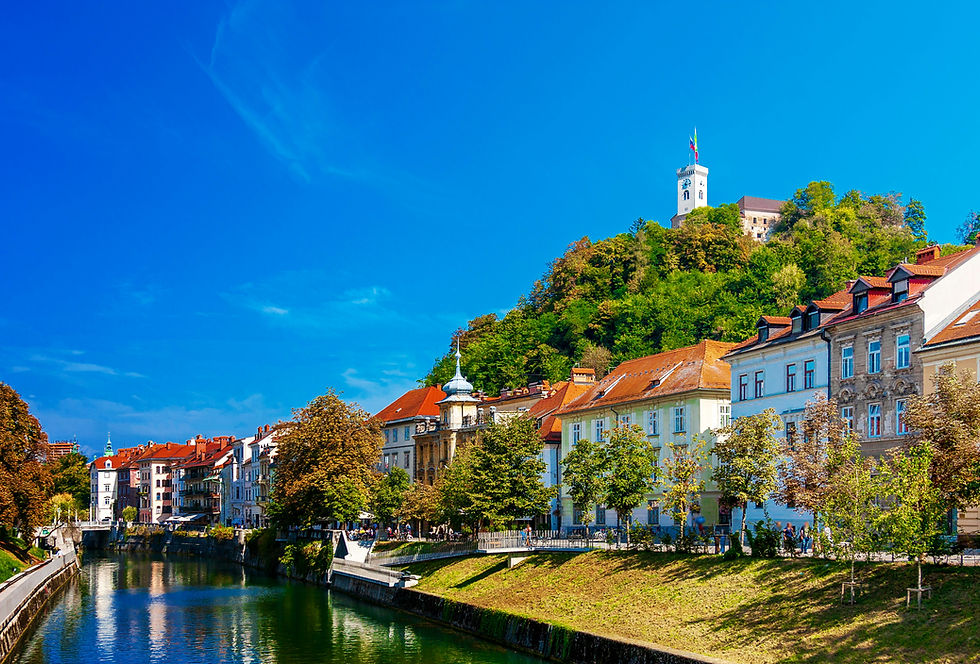🌿 Together for Net-Zero Emissions: The IPPCP Project is Here! 🚀
- nikamolan
- Aug 14, 2025
- 3 min read
We are pleased to announce that, as of May this year, Envirodual d.o.o. has joined the international project IPPCP (Intelligent Public-Private Carbon Platform) as a consortium partner. We are proud to contribute as the technical partner in the Ljubljana pilot, supporting the development of a federated urban data space for climate-neutral and sustainable cities.
🌍 Project Overview:
The IPPCP project aims to serve as an important step toward accelerating urban progress in energy efficiency, net-zero emissions, and zero pollution by promoting a data-driven culture and establishing a data infrastructure with analytical capabilities. Within the framework of IPPCP, a public-private data space will be developed and implemented, governed through Local Green Deals and other agreements, following the Government as a Platform approach. This data space will comply with the requirements of the DS4SSCC architectural blueprint, with the goal of federating with other European data spaces to help build a smarter and more efficient framework for data cooperation and use.
The newly developed services are expected to support the actions of industry, businesses, and civil society in improving energy efficiency and resilience, achieving zero pollution, and reaching climate neutrality. These services may lead to energy cost savings and enhanced sustainability credentials. In addition, they will help address common and interconnected challenges related to data culture, governance, interoperability, ethics, and federation capabilities.
💡 Cities Involved:
Ljubljana, Slovenia (Envirodual d.o.o. as technical partner)

Zaragoza, Spain

🤝 Partners:
Zaragoza City Council
Ljubljana City Council
Polytechnic University of Madrid
Geospatiumlab
Envirodual d.o.o.
📌 Domains of Focus:
Management of Energy Flows (MEF)
Zero Pollution Actions (ZPA)
Sustainable Urban Actions and Public Services (New European Bauhaus)
🔍 Use Case:
The project will create a data cooperation ecosystem to improve emissions inventories and climate strategies. Data from multiple sources will be integrated, focusing on MEF and ZPA, as well as sustainable urban actions. This will enhance the accuracy and reliability of emissions monitoring, enabling more effective urban climate policies.
👥 Stakeholders & Roles:
Industry & Agriculture: Data providers/users, supporting framework design and testing services.
Businesses & Associations: Engage in data provision and collaboration.
Public Administrations & Services: Key governance and adoption roles.
Energy Sector: Integrating and using energy-related datasets.
Citizen Groups & NGOs: Ensuring public participation.
Academic & Research Institutions: Knowledge sharing on data technologies.
Technology Providers: Supporting adoption of innovations.
Public Agencies: Ensuring compliance with policy and regulation.
🌱 Added Value:
Environmental:
Reduce GHG emissions by 80% by 2030.
Lower energy consumption across sectors.
Social:
Stronger company engagement and cooperation with city councils.
Greater citizen participation via digital tools.
Techno-Economic:
Boost investment in energy and zero-pollution actions.
More efficient emission reduction policies.
Job creation for tool management and maintenance.
Support SMEs and tech startups with open-access data for innovation.
🔗 Connected Initiatives:
EIT Climate KIC
Mission for Climate-Neutral and Smart Cities
NetZeroCities
Covenant of Mayors
EuroCities
Green City Accord
Intelligent Cities Challenge
🗝️ Ethics & Governance:
Data Privacy & Protection: GDPR compliance, explicit consent, lawful processing.
Data Sharing & Governance: Clear frameworks under the Data Governance Act.
Transparency & Open Data: Compliance with the Open Data Directive.
Data Localization & Free Flow: No unjustified restrictions; data portability.
Ethical AI Use: Fairness, transparency, and non-discrimination.
Security Measures: Strong cybersecurity protocols.
📋 Methodology:
Five work packages will guide the project: stakeholder engagement, requirements analysis, technical implementation, deployment, and sustainability—phased to align with DS4SSCC architecture and ensure long-term impact.
💬 Join Us.This initiative is a major step towards cleaner, smarter, more sustainable cities. Together with our partners in Ljubljana and Zaragoza, we are building the data foundation for Europe’s green future.
